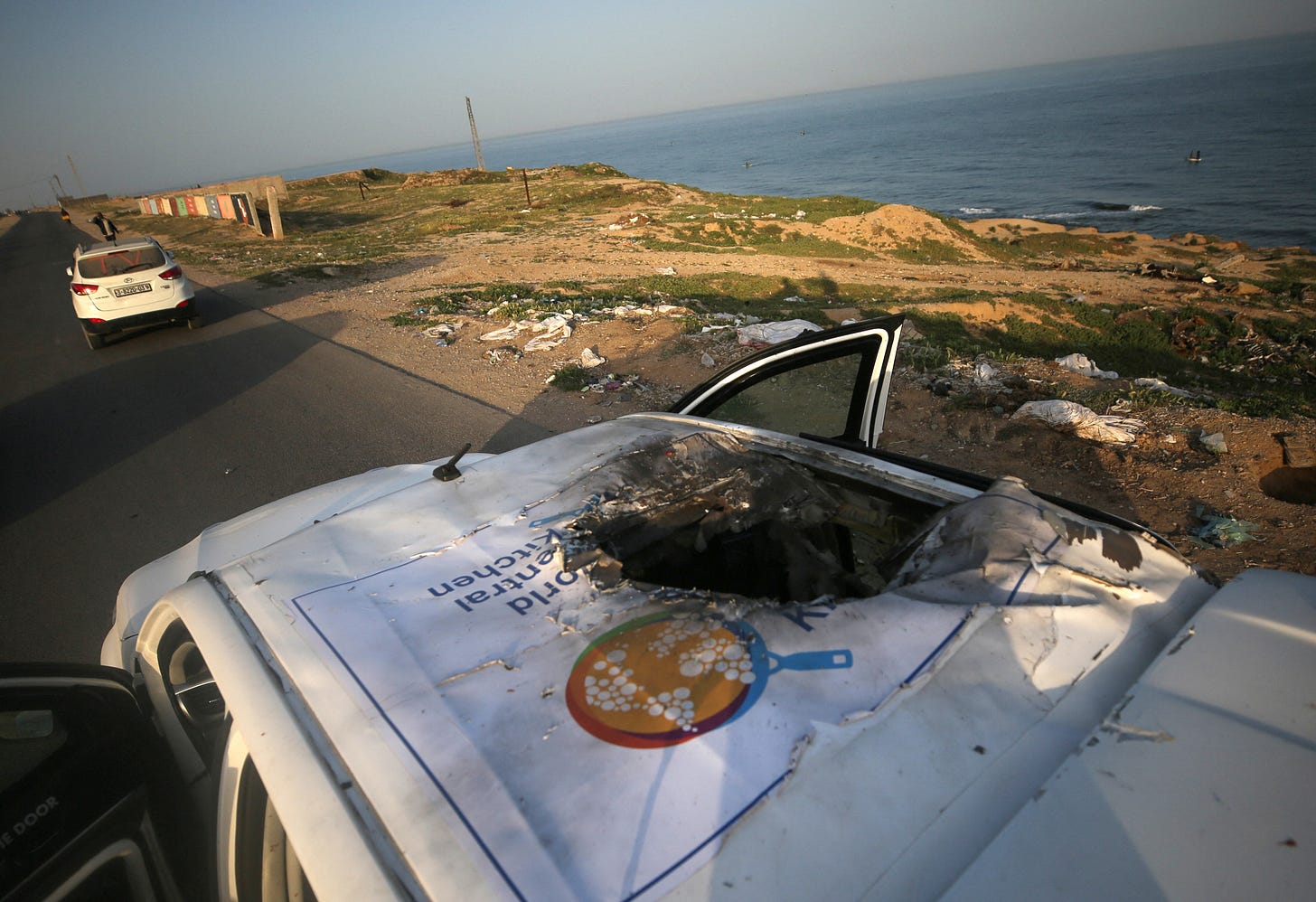The People You Meet in the Worst Places on Earth
Israel's targeted killing of aid workers is a sin that will never be absolved.
One of the things that annoys me these days is the proliferation of the term “war zone.” I think that this has been a linguistic cliche for a long time, but recently it seems as if everyone is talking about or describing or comparing things to a war zone. Meghan McCain says that midtown Manhattan is like a “war zone” during a summer of protests against police brutality; conservatives at large fantasize about “urban survival” when other cities go the same way. Whole countries, regions even, are described as “war zones,” usually to the bemusement and annoyance of most of the people who live there. There is a bizarre and complicated algebraic equation of risk at play in all of these places, one that people who live there do instinctually in their heads and that people who do not live or work there cannot comprehend. If you spend any particular amount of time doing this death calculus, you’ll probably end up at roughly the same point that I’m at: that the term “war zone” really only feels apt to describe the worst places on earth, areas where the brutal machinery of modern violence is ever-present and intense, where a violent death is not something that lurks in the back of your mind but a reality that you have to confront and cope with or else go completely insane. I have not spent very much time in these places, but I have spent enough time in them to know exactly the kind of people who visit them voluntarily.
The first is those who want to fight. This is usually uncomplicated: something in their mind has made it so that they cannot rest without participating in armed conflict. They may have good and honest reasons for doing so or they may just want to kill some guys. The distinction here is vitally important to them personally but not particularly important to anyone else.
The second group is the gawkers. These are hucksters and grifters seeking to profit financially or reputationally from the intense emotions surrounding any war. This archetype describes most members of buzzy charities that immediately implode without doing much of anything, failed politicians looking for photo ops, aimless or broken people looking for some sense of purpose. It also describes most journalists in “war zones,” including myself. The gawkers often stay in places with very little risk and exaggerate the small amounts that they are exposed to; or they dive into the riskiest places possible with little training or expertise in how to navigate those places. The former makes you an asshole, the latter can make you a dead asshole, or worse, get someone who isn’t an asshole killed.
The third group are the actual heroes. There is really no other word for it and every one of them would hate me for using it, but there it is. There are people that you meet in war zones who have seen the worst that humanity has to offer and are determined to make it better. These people are professional and clear-eyed about the work that they are doing and dedicated to doing it well. They are willing to assume enormous risk in order to do this job but seek to mitigate it whenever possible. It should be said that the vast majority of people who meet this standards are often locals; they are people who are intimately involved in the conflict and have dedicated themselves to extraordinary feats of humanity despite the horror they live in every day, but in any war zone there are foreign heroes as well. You do not have to romanticize war to believe this: these people exist, have always existed, and will continue to exist in every conflict or disaster to come. The tragedy of it all is that they, too, often end up dead.
Keep reading with a 7-day free trial
Subscribe to Discourse Blog to keep reading this post and get 7 days of free access to the full post archives.





